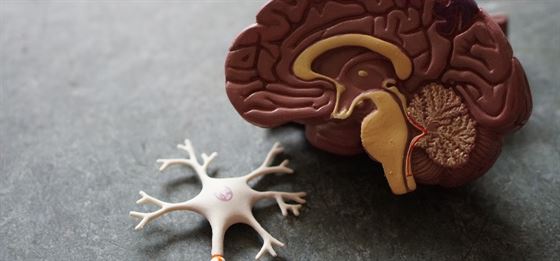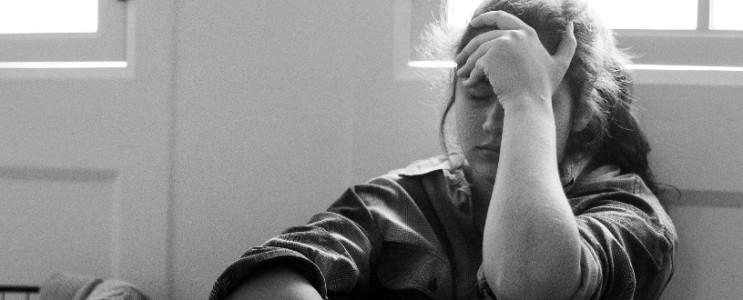
Dads Don't Always Wear Capes: Fatherhood and Mental Health

Dads Don't Always Wear Capes: Fatherhood and Mental Health
Fatherhood, a profound and transformative experience, significantly impacts a man's mental health. As fathers take on the multifaceted role of caregiver, provider, and role model, they encounter a unique set of emotional and psychological challenges. Understanding the interplay between fatherhood and mental health is crucial, not only for the well-being of fathers but also for the health and stability of the entire family. Traditionally, the conversation around parental mental health has focused on mothers. However, research reveals a concerning truth – fathers are susceptible too.
A father's mental health isn't just a personal struggle; it has a ripple effect on the entire family. Children are keen observers, picking up on their father's emotional cues. A father struggling with mental health may exhibit symptoms like withdrawal, irritability, or anger. This can create a tense and stressful home environment, impacting a child's emotional development and potentially increasing their risk of behavioral problems or mental illness themselves
The Emotional Journey of Fatherhood
The transition to fatherhood is marked by a range of emotions, from the elation of welcoming a new life to the anxiety of increased responsibilities. Many fathers experience joy, pride, and a deep sense of purpose. However, this period is also fraught with stress, self-doubt, and, in some cases, profound psychological strain. The pressure to provide financially, the demands of active parenting, and the need to maintain a balanced relationship with their partner can be overwhelming.
Postpartum Depression in Fathers
While postpartum depression (PPD) is commonly associated with mothers, research indicates that fathers can also suffer from this condition. Paternal postpartum depression (PPPD) affects an estimated 4-25% of new fathers within the first year after the birth of their child. Symptoms include sadness, fatigue, irritability, and feelings of being overwhelmed. The societal expectation that men should be stoic and emotionally resilient often prevents fathers from seeking help, exacerbating their distress.
The Impact of Sleep Deprivation
Sleep deprivation is a common issue for new parents, and its effects on mental health are well-documented. For fathers, disrupted sleep patterns can lead to decreased cognitive function, mood swings, and impaired decision-making abilities. The cumulative effect of sleep deprivation can contribute to anxiety and depression, further complicating the challenges of new fatherhood.
Balancing Work and Family Life
Modern fathers are increasingly involved in hands-on parenting, but many still face the challenge of balancing work responsibilities with family life. The pressure to excel professionally while being an engaged and present parent can create significant stress. Fathers may feel torn between the desire to spend quality time with their children and the necessity of working long hours to provide for their family. This tension can lead to burnout and negatively impact mental health.
Societal norms and expectations often dictate that men should be strong, unemotional, and self-reliant. These stereotypes can prevent fathers from expressing vulnerability or seeking help for mental health issues.
Supporting Fathers' Mental Health
Despite the challenges, active and positive involvement in their children's lives can have numerous mental health benefits for fathers. Engaged fatherhood is associated with lower levels of stress, higher life satisfaction, and a greater sense of purpose. Fathers who build strong, nurturing relationships with their children often report feeling more fulfilled and emotionally connected.
Here are some key strategies fathers can use to protect and improve their mental health:
- Schedule "Me Time": Even 30 minutes a day dedicated to activities you enjoy with your family can make a big difference. This could be exercise, reading a book, playing a game, or spending time in nature.
- Prioritize Sleep: Aim for 7-8 hours of quality sleep each night. Develop a relaxing bedtime routine and stick to a consistent sleep schedule.
- Fuel Your Body: Nourish yourself with healthy, balanced meals. Eating nutritious foods regulates mood and energy levels.
- Talk It Out: Communication is key. Talk openly with your partner, friends, or family about the challenges you're facing. Joining a support group specifically for fathers can be a fantastic source of understanding and shared experiences.
- Challenge the Myth: Dads can be emotional too! Let go of the pressure to be the stoic, emotionless figure. Sharing your feelings is a sign of strength, not weakness.
- Seek Professional Help: Therapy is a valuable resource. A therapist can equip you with tools and strategies for managing stress, anxiety, and any underlying mental health conditions.
- Mindfulness Practices: Techniques like meditation or deep breathing can help manage stress and improve emotional regulation.
- Realistic Expectations: Set realistic goals for yourself as a father. Perfection doesn't exist, and striving for it will only add to stress.
- Shared Responsibilities: Work together with your partner to create a balanced division of household chores and childcare.
- Engage in Quality Family Time: Spending quality time with family can strengthen bonds and provide emotional fulfillment. Engaging in activities like playing games, reading together, or going for walks can create positive experiences and memories
- Limit Unnecessary Stressors: Identifying and limiting unnecessary stressors can help improve mental health. This might involve managing time better, delegating tasks, or reducing exposure to negative influences.
Fatherhood is a rewarding but challenging journey that profoundly impacts a man's mental health. Acknowledging the emotional complexities of this role is essential for the well-being of fathers and their families. In doing so, we not only enhance the mental health of fathers but also contribute to the overall health and happiness of families. Dads don't always wear capes, but taking care of their mental well-being is a true act of strength and the ultimate gift they can give to their families. A happier, healthier dad creates a more positive and supportive home environment for everyone.
Articles
Build your awareness and get inspired with our researched articles on how you can strengthen your well-being
Popular Topics
An OTP has been sent to the email address
provided.
Please check your Inbox and Spam folders.

What Would You Like to Speak with a Specialist About?
Mental Fitness Journey starts Now!
Chearful Connects you with Top-tier Qualified Wellness specialists for the Price of a cup of Coffee!

Next Steps
- A Client Team member will reach out to you to schedule a session with the most suitable specialist.
- You will receive an email with a 10% Discount Code* for your 1st session.
- We invite you to Explore the Platform & Sign Up today! *Upto a maximum of $10 discount on a session purchased




 3192 Read
3192 Read



.jpg)







.png)

.jpg)

.jpg)



.jpg)






























.jpg)























